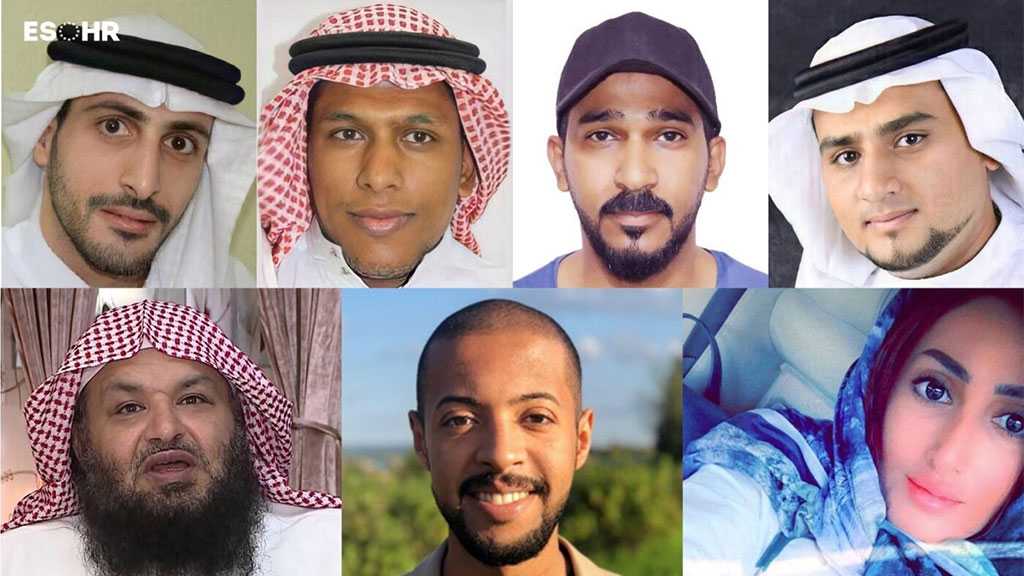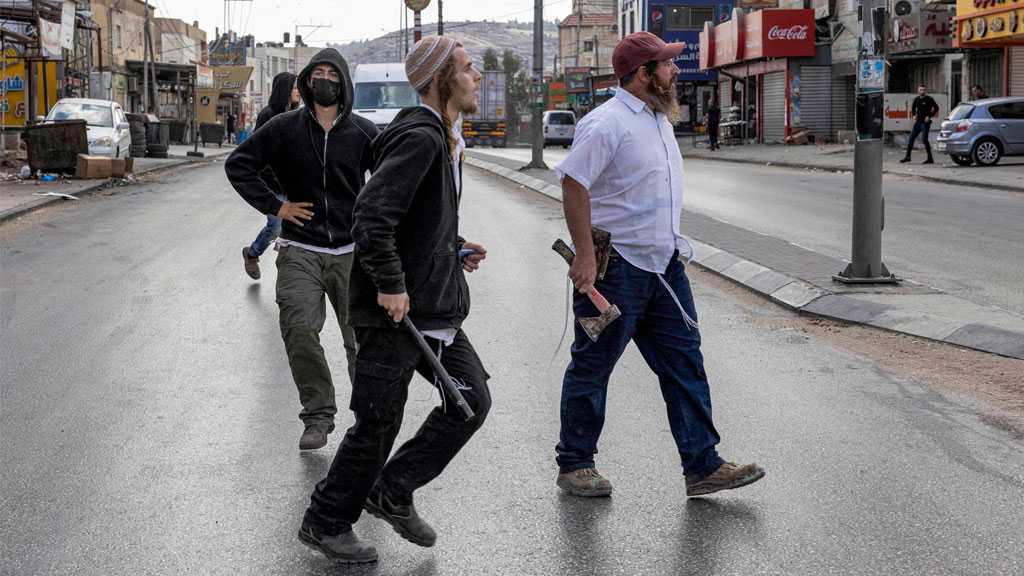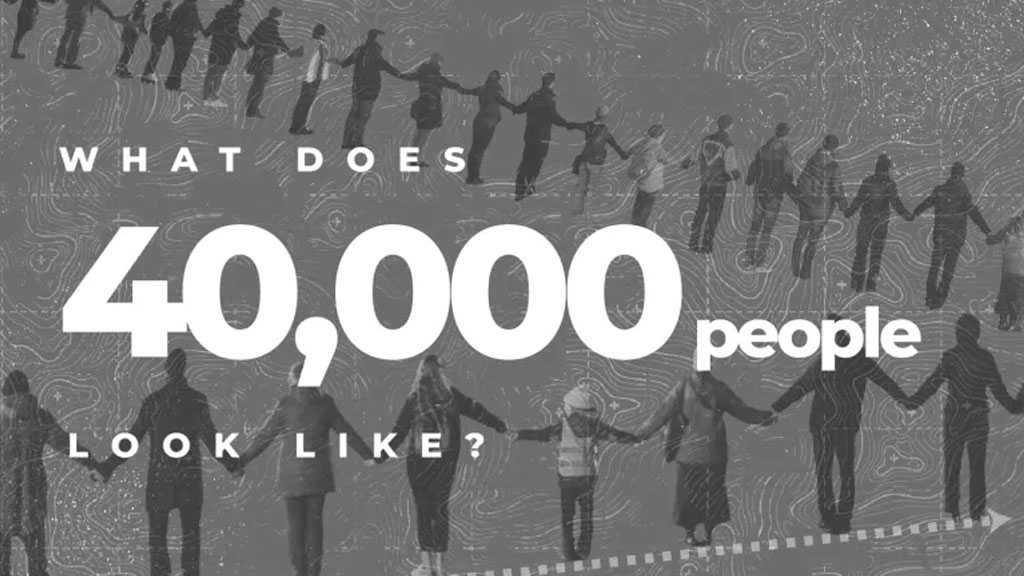Enforced Disappearance: A Crime against Humanity Systematically Practiced by Saudi Arabia

By the European Saudi Organization for Human Rights
On the International Day of the Victims of Enforced Disappearance, which is commemorated every year on August 30, UN Secretary-General Antonio Guterres stressed that, despite being "strictly prohibited by international human rights law in all circumstances, enforced disappearances continue to be used worldwide as a means of repression, intimidation and stifling opposition. Lawyers, witnesses, political opposition and human rights defenders are at particular risk of enforced disappearance," he said. "This deprives families and communities of the right to know the truth about their loved ones, accountability, justice and reparations."
The Kingdom of Saudi Arabia practices enforced disappearance, on a large scale, especially against political detainees and opinion-makers through blatant circumvention and evasion. Most families of the victims are unaware of the fate of their relatives, after they have been detained on the street or in their workplaces, because they have been deprived the right to communicate with them and have no access to a lawyer.
In many cases, after a forced disappearance, that last for hours or days, officials at General Investigation Prisons allow the disappeared person a brief contact to inform his family of his whereabouts, only to return and disappear for periods lasting a year or more, during which he is tortured and denied the right to communicate with the outside world or access a lawyer.
In other cases, enforced disappearance extends without any information about the victim's whereabouts or the reason for the arrest, for months or years. In light of Saudi Arabia's intimidation policy against activists and human rights defenders.
The European-Saudi Organization for Human Rights documented the Saudi Arabian government's use of enforced disappearance as a prelude to torture, extracting confessions, and in many cases the use of these confessions to issue death sentences.
Enforced disappearance is defined, according to the article II of the International Convention for the Protection of Persons from Enforced Disappearance, as "arrest, detention, abduction or any other form of deprivation of liberty by agents of the State or by persons or groups of individuals acting with the authorization, support or acquiescence of the State, followed by a refusal to acknowledge the deprivation of liberty or by concealment of the fate or whereabouts of the disappeared person, which deprives him of the protection of the law".
During 2021, ESOHR monitored the practice of enforced disappearance by the security services against a number of detainees, including activists:
Abdullah al-Mubaraki:
On July 22, 2021, Al-Mabaheth forces arrested online activist Abdullah bin Awad al-Mubaraki from his home in Yanbu. The family does not officially know the reason for the arrest and news broke from the moment of the arrest. Despite attempts by the family to find out where he is, and to verify his whereabouts from the prisons of Yanbu, Medina and Jeddah, they have been unable to reach him. However, activists believe that the reason for his arrest stems from his expression of opinion, his participation in campaigns on social media to defend political and civil rights, and his opposition to government policies.
Lina al-Sharif
In late May 2021, officials from the Saudi State Security Presidency raided the Sharif family's home in Riyadh, arresting Dr. Lina al-Sharif and taking her to an unknown location. Before her arrest, al-Sharif had been active on social media, discussing Saudi politics and defending human rights issues in Saudi Arabia.
Abdullah
On May 12, 2021, State Security forces arrested Abdullah Jilan, in Medina, after it stormed his mother's house and searched him before taking him to an unknown location. Jilan was active on Twitter, calling for his right to work and fundamental freedoms in Saudi Arabia. So far, his fate and whereabouts remain unknown.
Najla Abd El-Aziz:
Saudi security forces arrested activist Najla Abdul Aziz Mohammed al-Marwan on July 20, 2021, from her home in the capital al-Riyadh. Najla is a young divorced woman and a mother of two children. According to reports, Saudi Arabia is still forcibly hiding her after more than a month in detention, and the family has no information about her.
Najla's Twitter account shows that she welcomed and supported the call to demonstrate in conjunction with Arafa Day. A group of activists launched a hashtag called #Arafat_Day_protest, and called for participation in a campaign against the government's policies and the Crown Prince Mohammed bin Salman, with the goal of calling for the release of detainees, in addition to enabling young people's right to employment, tax removal, and more.
ESOHR also monitored other arbitrary arrests. Local sources said victims were also subjected to enforced disappearance, including Sheikh Abdullah al-Shihri, who was arrested for tweets criticizing statements made by Crown Prince Mohammed Bin Salman. Among those reported missing are Reina Abdulaziz and Yasmine al-Ghafili.
Continuous Enforced Disappearances:
In addition, Saudi Arabia regularly hides individuals, with no information on their whereabouts for years.
In April 2016, preacher Suleiman al-Darwish disappeared during his visit to Mecca. His family does not know any details about the arrest or its reasons nor has it been officially informed of any information about his whereabouts. However, the Ministry of Interior posted his name on its website, which is dedicated to identifying the names and status of detainees. The statement indicated that he was "under investigation", but his name was removed after a while.
Al-Darwish is still missing and despite the request from the UN Working Group on Enforced Disappearances for official information from Saudi Arabia on his whereabouts, his whereabouts remain unknown."
Human rights organizations that received information in May 2012 confirmed to them that Al-Duwaish was transferred directly to the office of Saudi Crown Prince Muhammad bin Salman after his arrest, where he beat him.
In August 2015, the Saudi government announced the arrest of Ahmad al-Mughassil in the Lebanese capital, Beirut. Since his arrest six years ago, the family has not been able to contact him or to know his whereabouts. Although Saudi Arabia announced the arrest, it did not announce where he was being held or the charges he is officially facing. Information the family received about the possible murder or death under torture raised concerns that the family could not get any information about his condition since his arrest.
In January 2020, Saudi security forces arrested Mohammed Al Ammar during a military raid in Qatif. The Saudi government announced the arrest of Ammar, who had been on wanted lists for years, but the family was unable to find out where he was, and they did not allow him any visits. In light of information about his severe injury during the arrest. Al-Ammar was not offered a trial, unless his whereabouts were known to be in enforced disappearance.
Hide as an introduction to unfair judgments:
Besides the cases in which individuals are still forcibly disappeared, detainees face harsh sentences, sometimes up to death, despite being subjected to enforced disappearance at the time of arrest. Among them is Mohammed Al-Shakhouri, who was forcibly disappeared by the Saudi government for three days after his arrest, and who was then able to communicate with his family in brief call, not being able to know what he was exposed to for eight months. The organization has also monitored executions of detainees including minors, despite violations there were subjected to including enforced disappearances, such as Abdelkrim al-Hawaj.
According to ESOHR, the Saudi government uses enforced disappearance for a variety of reasons. While in many cases concealment is used as a prelude to torture in order to extract confessions, it is used for reprisal motives that refuse to disclose definitively the status and location of the person forcibly disappeared and to intimidate the community and families.
The organization maintains that Saudi Arabia, through its practice of enforced disappearance, is committing a "crime against humanity" violating its domestic and international laws. And it recalls that no justification for the continuation of this crime can be invoked, as affirmed in the International Convention for the Protection of All Persons from Enforced Disappearance: "No exceptional circumstances whatsoever, whether a state of war or the threat of war, internal political instability or any other exception, may be invoked to justify enforced disappearance."




